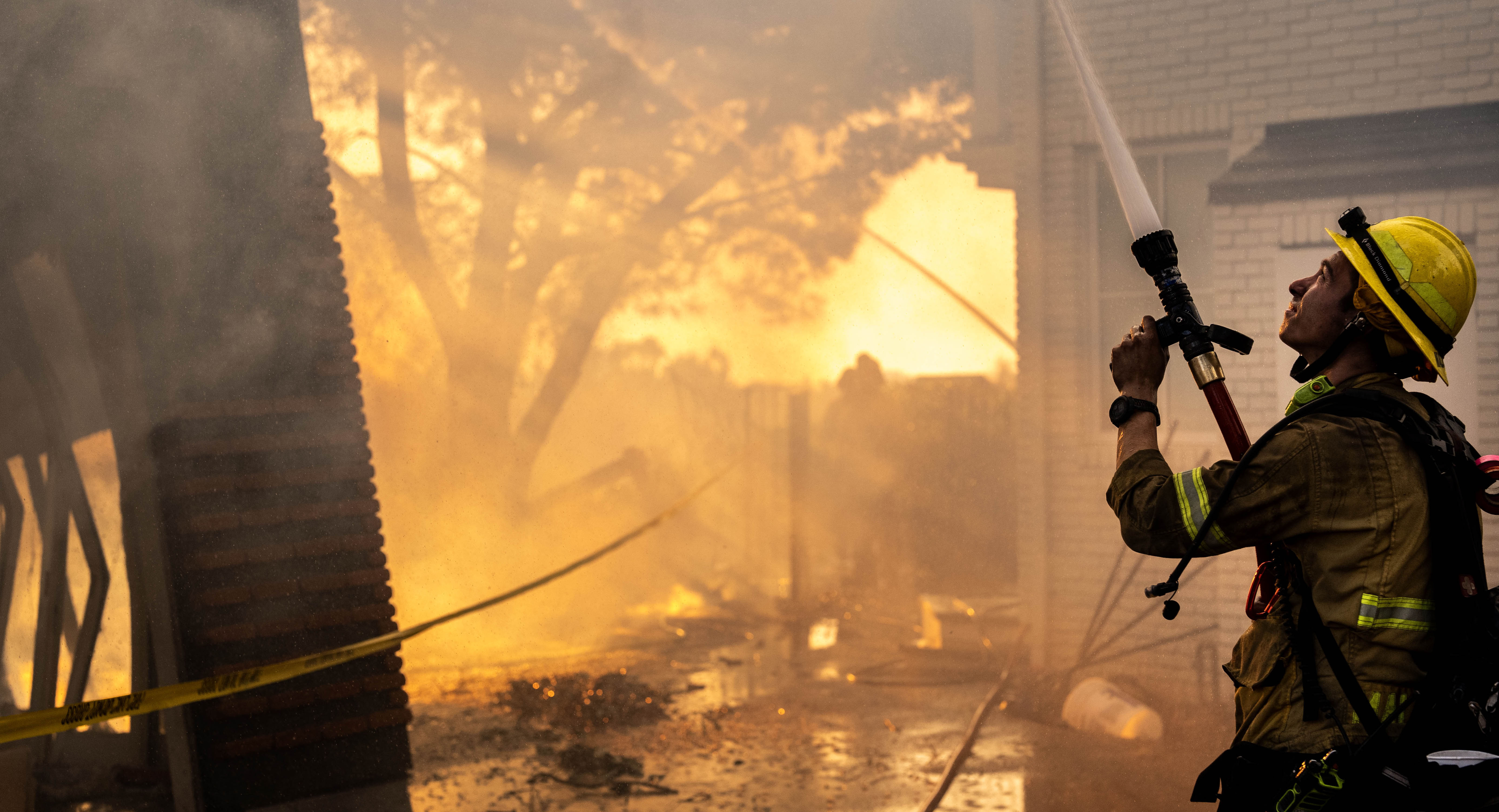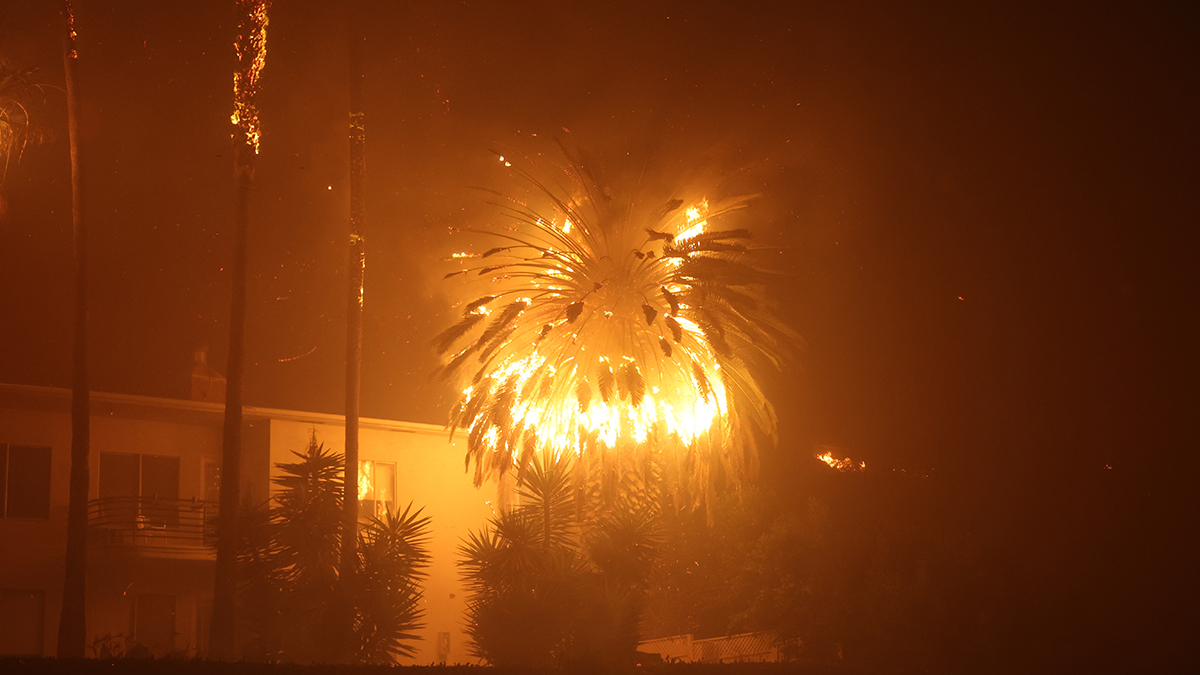A staggering 180,000 people have been evacuated from their homes in Southern California, where wildfires have killed six people and scorched some 45 square miles. NBC Chicago’s Natalie Martinez reports.
The California wildfires have dominated recent headlines with stories of the sheer devastation, relentless firefighting efforts and devastated homeowners whose lives have changed forever.
The words and images can evoke a variety of emotions, including sadness, helplessness and anxiety, and that goes for both adults and children. For parents trying to navigate tough conversations regarding wildfires, it's no easy task.
Here's what strategies a licensed therapist recommends to make the discussion as seamless as possible:
Focus on responding to questions
Corina M. Teofilo Mattson, a licensed marriage and family therapist who serves as clinical director and chief operations officer of Live Oak Chicago, said parents might think they have to imagine all possible questions before providing answers.
But that's not the case; with kids, it's ideal to be responsive in the moment, Mattson said.
"...Encourage parents and guardians to give brief and concise answers to exactly the questions that they're asking," she said.
And that advice carries true across all ages, according to the therapist.
Make room for kids to talk about what they've seen & heard
Feeling out of the loop? We'll catch you up on the Chicago news you need to know. Sign up for the weekly Chicago Catch-Up newsletter.
In the current digital age, the chance of children encountering devastating scenes increases, especially as they get older.
Seeing those images can lead to anxiety, especially when kids don't have the support of an adult that gives them room to talk through what they've seen, Mattson said.
"...My major suggestion is not so much that we do everything we can to prevent them from seeing the images, but rather that adults who care about children should make room for kids to talk about what they've seen, what they've heard, what they understand about the traumas that are existing around us," she stated.
Normalize whatever feelings they're having
Whether children are experiencing sadness, numbness or another emotion - it's okay, Mattson emphasized.
"When adults tell kids that it makes sense, it's totally understandable to be feeling the way that they do," she stated. "It teaches the kids not to think there's something wrong with their internal experience and to be more likely to talk to the adults around them about what's happening for them."
Admit that adults are also impacted
Adults should acknowledge we are heartbroken as well - and when we're devastated by what we have seen.
Adults often think we need to act as if we're unaffected in order to be strong for the children around us, Mattson stated.
That isn't true, however.
"So I encourage adults to be willing to admit that we are also impacted by these traumas, which tells kids it's okay to be affected, and it's okay to talk about it," she said.
Don't tell them it's going to be okay
Telling kids it's going to be okay might be really tempting, but Mattson cautions against doing so.
"What it means for things to be okay is defined by each person, and what a kid will assume, based on that kind of statement, is totally dependent on who that kid is," she said.
You can still be reassuring, but go about it differently.
"So find other ways to offer reassurance by being clear that you're going to stay with this child through the thing that they're dealing with," Mattson said.
What about younger children?
While some strategies are applicable when dealing with kids of all ages, you might need to adjust your approach when talking to younger children.
Younger kids "may be more or less attuned to what those images even mean as they're seeing them as it's happening," the therapist stated. So, it's important to know what the kids are taking in. What did they see? What did they notice?
"The goal would be to make room for them to tell you what is their brains thinking about," Mattson explained. Who are they thinking about?"
If you're noticing your kids are impacted -- it's totally reasonable and actually not unhealthy -- even at a younger age.
"...Really to tell kids of all ages in words that are appropriate for their age that you're glad that they're thinking about the people who are most impacted, because you want to raise an empathic child who's concerned about the way that the world is impacting the people around them," she said.




